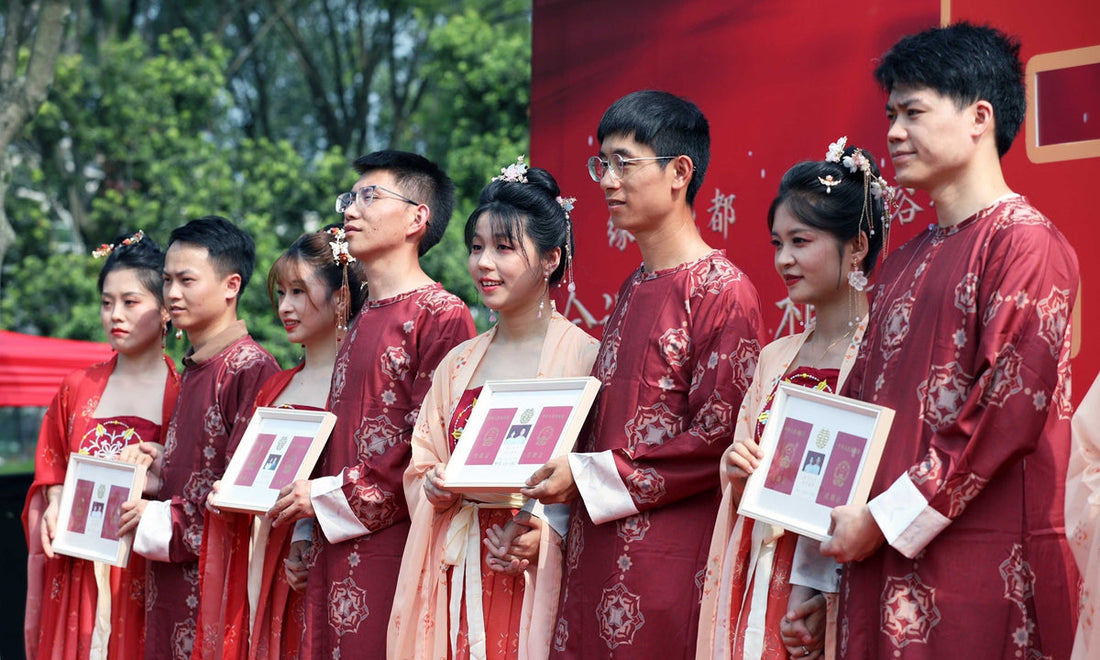
Qixi Festival: China’s Ancient Celebration of Love and Stars

Every year, on the 7th day of the 7th lunar month, China celebrates Qixi Festival (七夕节), also known as the Double Seventh Festival or Chinese Valentine’s Day. Unlike its commercial counterparts, Qixi is a poetic holiday rooted in astronomy, folklore, and timeless romance.
🌌 The Legend: A Celestial Love Story

At the heart of Qixi lies one of China’s oldest legends: the tale of Zhinü and Niulang (the Weaver Girl and Cowherd).
- Zhinü, daughter of the Jade Emperor, was a celestial weaver whose robes shimmered like the Milky Way.
- Niulang, a mortal cowherd, fell in love with her after his magical ox helped him steal her robe while she bathed.
- They married and had twins, but when the Jade Emperor discovered their union, he banished Niulang to Earth and drew the Silver River (Milky Way) between them.
- Moved by their tears, magpies formed a bridge each year on the 7th day of the 7th month, allowing the lovers one night together.
This story mirrors the annual celestial alignment of the stars Vega (Zhinü) and Altair (Niulang) on either side of the Milky Way.
🪡 Traditional Customs: Skills, Stars, and Wishes
Qixi was historically called Qǐ Qiǎo Jié (乞巧节), "The Night of Skills," celebrating feminine ingenuity. Customs included:
- Threading Needles Under Moonlight: Young women practiced weaving and needlework beneath the stars, seeking Zhinü’s blessing for skill.

- Fruit Offerings: Melons, peaches, and seasonal fruits were left on altars as tributes.

- Wishing Rituals: Unmarried girls whispered dreams of love into the night sky.

- Magpie Watching: Spotting magpies (rare in midsummer) signaled the bridge’s formation.

📜 Cultural Echoes Through Time
-
Tang & Song Dynasties: Poets like Li Shangyin wrote verses about the "magpie bridge," romanticizing the lovers’ reunion.
-
Modern Observance: While still celebrated traditionally in rural areas, urban China now embraces Qixi as a day for romantic dates and stargazing.
-
In Japan & Korea: Similar festivals exist (Tanabata in Japan, Chilseok in Korea), blending local folklore with the star-crossed tale.
🌠 How to Celebrate Authentically
-
Look Up: Find Vega and Altair in the summer sky — they’re brightest near midnight.
-
Share Folktales: Pass down the legend to younger generations.
-
Craft with Meaning: Practice traditional arts like paper-cutting or knot-tying.
-
Write a Poem: Channel ancient poets by penning verses about love or longing.
💫 Why Qixi Still Resonates
Beyond romance, Qixi honors:
-
Human Ingenuity (Zhinü’s weaving mastery),
-
Nature’s Cycles (the agricultural lunar calendar),
-
Sacrifice and Hope (love overcoming separation).
It’s a reminder that some bonds—like starlight—transcend time and distance.
This year, Qixi falls on August 10, 2024. Whether you stargaze, tell stories, or simply reflect on love’s endurance, may you find magic in this ancient sky-bound celebration.



